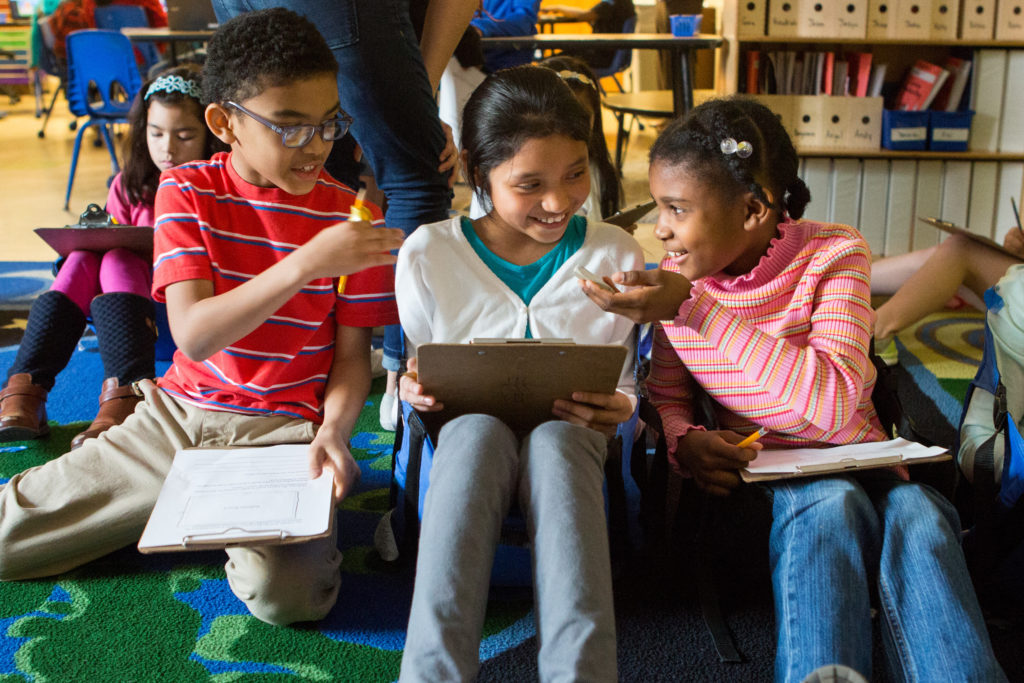Within the context of a primary classroom, the concepts of ethics and morality in children evolve gradually from being dictated almost exclusively by direct adult instruction during preschool to eventually being more heavily influenced by their pre-teen peers at the start of their middle school journey. It is a process that follows a similar sequence for all humans, but also one where each individual varies with respect to what phase they linger on for a shorter or longer period. Some of these stages might be oppositional in nature, and some might require the child to display anger through temper tantrums and other non-cooperative behaviors.
This requires tools for teachers to estimate the present developmental stage each student is neighbouring, and then facilitate the planning of interventions that help the child overcome their social-emotional plateaus while keeping the community within the classroom motivated and able to prioritize learning, without refusing any child their right to express their own individuality, but also without hindering the overall progress of the class towards understanding and mastery.
In this regard, our focus as adults should be on the promotion of prosocial behaviors and not on the punishment of antisocial ones, as it will be easier for the child to acquire a new repertoire of specific actions and practices than it would be to expect them to have the precocious self-awareness to understand what triggers them and then to act upon a willpower for restraint that their brains are still too young to possess in full.
The following insights are taken from studies that analyze three different strategies to achieve these results:
1. Projet Prima!r, from Luxembourg:
The country-wide intervention started from preschool to change the trajectory of antisocial behavioral patterns before rejection from peers and adults would cement them as a disorder. It included lessons delivered by both teachers at school and parents at home that sought to help children develop a set of competencies in both domains: social (social information processing, problem solving abilities in difficult social situations, peer relationship quality) and emotional (recognition and understanding of primary emotions, appropriate vocabulary, and regulation techniques).
Among other findings, they found that a positive praise-to-reprimand ratio was most effective in motivating learners to act prosocially, and that delaying positive reinforcement had a rather destructive effect. A very positive result was that some students who might have not shown prosocial attitudes at the time of training, would eventually display them one year after the fact, once their linguistic abilities had improved due to the language arts instruction received in school.
2. Altruism and Fairy Tales, from Czech Republic:
Through a metanalysis of studies dealing with aggression and prosocial skills to develop a framework for Czech schools, the researcher found that infants would acquire the ability to act prosocially through direct parental moralization, where the explanation for each prosocial convention had to be taught by the parent using emotionally rich verbal expression and avoiding neutral speech, and also through fairy tales that exemplify the desired social habits.
The literary aspect of this study includes references to the work of the Czech author Karel Čapek, and his classification of eleven motifs in traditional fairy tales, which can be considered when selecting the texts one reads to children as part of a prosocial intervention.
As the child grows into a more peer-oriented social compass, the researcher recommends introducing collaborative classroom learning dynamics, including but not limited to peer-teaching activities, where one student would attempt to help others who are not as proficient as them in certain topics, to encourage the manifestation of altruistic behavior.
3. PROSEL Program, from Italy and Spain:
They trained teachers from both countries on a program that frames social emotional learning (SEL) from a prosocial perspective (PRO), and that emphasizes inclusion to help students reach higher levels of performance in oral comprehension tasks, as well as looking to develop a replicable methodology for teachers to use without adding up too much labour on top of their other regular responsibilities.
The program used 15 sessions to get students and teachers from an introduction to SEL and PRO, and it included topics such as responsible decision-making and positive evaluation of others.
They obtained several positive results. Specific displays of prosocial behavior increased in frequency and quality, by way of the children realizing what such assistance meant from the perspective of the receiving person, and there were more spontaneous instances of children with special needs being integrated in free time activities by their peers.
References
Badía Martín, M., Escotorín Soza, P., Morganti, A. & Roche, R. (2019). EDUCATIONAL INTERVENTION FOR AN INCLUSIVE CULTURE IN PRIMARY SCHOOL: THE QUALITATIVE DIMENSION OF THE PROSEL PROGRAMME. CZŁOWIEK – NIEPEŁNOSPRAWNOŚĆ – SPOŁECZEŃSTWO. 4(46). 25-37. DOI: 10.5604/01.3001.0013.7571
Mareš, J. (2017). Prosocial Behavior Education in Children. Acta Educationis Generalis. 7(2), 7-16. http://dx.doi.org/10.1515/atd-2017-0009
Petermann, F. & Natzke, H. (2008). Preliminary Results of a Comprehensive Approach to Prevent Antisocial Behaviour in Preschool and Primary School Pupils in Luxembourg. School Psychology International, 29(5), 606-626. http://dx.doi.org/10.1177/0143034308099204

No comments:
Post a Comment